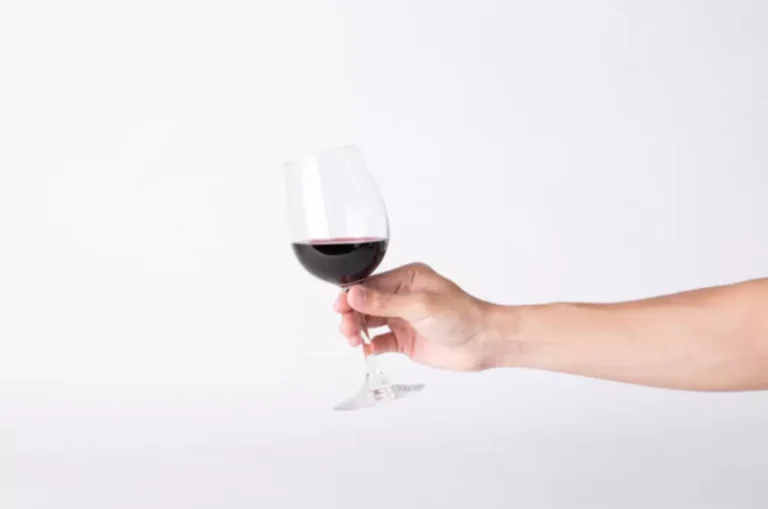
Listen to how you say what you’re saying and remember that an argumentative tone or name-calling will not build a peaceful bridge to understanding. The information contained on this website is not intended to be a substitute for, or to be relied upon as, medical advice, diagnosis, or treatment. Always seek the advice of your physician or other qualified health provider with any questions you may have regarding a medical condition. • If you’ll be seeing relatives who don’t know your family member has just completed treatment, prepare beforehand as to who will communicate the information in a way your family member is comfortable. However, just because these emotions can be too much to handle, they are not excuses to rationalize a slip. Here are some general strategies for reframing holidays and creating successful sober celebrations.
Healing Hands, Healing Hearts: Advocating for Nurses’ Mental Health

If they don’t what is alcoholism want any special steps taken to accommodate them, and both you and they are comfortable with them taking part this time, then simply go ahead. Letting those close to you know that you’re intentionally avoiding overscheduling can also help set expectations. Recover from addiction at home with medication, community, and support—from the nonjudmental experts who really care. Recovery Unplugged is a national behavioral health treatment organization with locations across the country that combines evidence-based practices with music to help patients more readily embrace treatment. Here are some additional tips for celebrating the holidays with a family member in recovery.
Romance and Recovery: Navigating New Relationships in Early Sobriety
You may be alone by necessity, because you are unable to travel, or because your family is not available. Furthermore, you may be alone due to the loss of family members or because of your recovery needs. Even if being without your family is a choice made for your well-being, spending the holidays without family can still be difficult. Join our global mission of connecting patients with addiction and mental health treatment. Recovery.com combines independent research with expert guidance on addiction and mental health treatment.

Tips to Enjoy a Sober Holiday Season
Plans could include having a ride or knowing public transportation schedules if you need to leave an event suddenly, practicing how you will turn down a drink, or deciding what to do if you begin to feel uncomfortable. • We encourage you to be supportive and proactive about your family member’s recovery. You can reach to them in a way that lets them know you trust them with their own recovery but that you are there for them if needed. The holidays are a challenging time of year emotionally for many people. For as much as happy memories and goodwill are promoted, many people experience quite the opposite. One of the factors that cause so many negative experiences and emotions is the amount of alcohol and other substances consumed during this time of the year.
Although you can be their advocate and offer support, you must also learn to respect their independence and ability to make their own decisions. It’s easy to forget about maintaining your recovery routine when you’re in the middle of holiday chaos. It’s very important reframing holidays in early recovery to prioritize your health and be mindful of your recovery coping mechanisms. Sometimes it is necessary to miss out on a holiday function to attend a counseling session or group meeting.
Reframing Holidays in Early Recovery Holidays During Recovery

People in early recovery are often experiencing difficult personal or financial circumstances while at the same time trying to learn to live without the substance that had become central to their lives. While the holidays are a time to celebrate family and good cheer, they are also a time when other feelings can be heightened. Such feelings can include a sense of loss about a deceased family member, or feelings of hurt, resentment, anger, shame, or guilt about the past on the part of the recovering person, other family members, or both.
Strong Boundaries Can Create Safety
For everyone, sober or not, personal growth is a constant, ongoing, transformative experience that contributes to self-realization and continued health and wellness. Instead of thinking the worst, trust that your relatives are asking questions in a neutral manner and not simply to question, irritate, or challenge you. Take time to understand others’ points of view and avoid assuming anything about their motivations. When your emotions cloud your judgment, try to use mindfulness techniques to feel more centered and grounded.
Journavx: FDA Approves New Non-Opioid Treatment for Moderate and Severe Acute Pain
It may help to ask a loved one how they will feel if others are drinking alcohol and explore ways to have an alcohol-free event. If a loved one says they don’t feel comfortable coming to a gathering with alcohol, that can be honored. When families are engaged in the process of recovery, the outcomes improve significantly.

Create Your Holiday Relapse Prevention Plan
We believe everyone deserves access to accurate, unbiased information about mental health and addiction. That’s why we have a comprehensive set of treatment providers and don’t charge for inclusion. We do not and have never accepted fees for referring someone to a particular center. Providers who advertise with us must be verified by our Research Team and we clearly mark their status as advertisers. Researched, fact-checked and transparent articles and guides that offer addiction and mental health insight from experts and treatment professionals. We’re Recovery Unplugged, a behavioral https://ecosoberhouse.com/ health initiative bringing effective treatment right to your home.
- If their family does not respect that boundary, then the individual in recovery should feel comfortable not attending gatherings.
- However, one thing that all triggers have in common is that they trigger emotional distress, which can lead to an emotional relapse.
- These medical practices include Workit Health (MI), PLLC, Workit Health (CA), P.C., Workit Health (NJ), LLC, Workit Health (OH), LLC, and any other Workit Health professional entity that is established in the future.
- Despite all the pain and aggravation that alcohol and drugs may have caused the recovering individual, giving them up can result in a powerful sense of loss.
Because if there’s one thing more haunting than millions of addiction deaths, it’s knowing they’re preventable. If you or family relapses in recovery this holiday, Recovery Unplugged is waiting to help them and your loved ones get back on track. Make a “Recovery Kit” – Contact numbers, sponsor check in, Big Book, affirmations, list of local AA/NA/SMART recovery, bring your own beverages, have an escape plan. Make a schedule of available support meetings (e.g., Alcoholics Anonymous, Narcotics Anonymous, or SMART Recovery).

